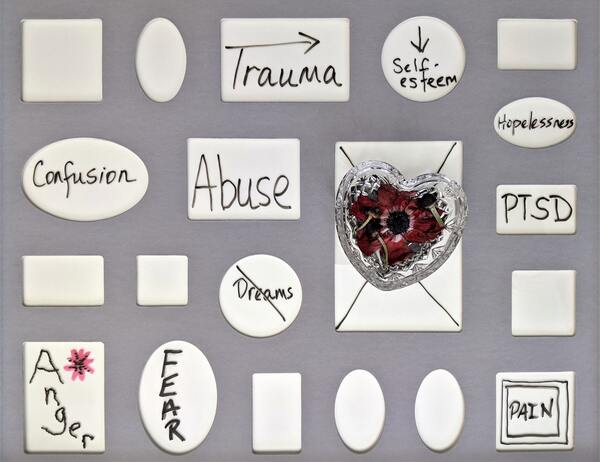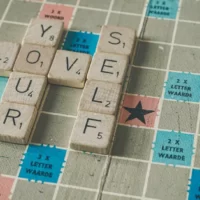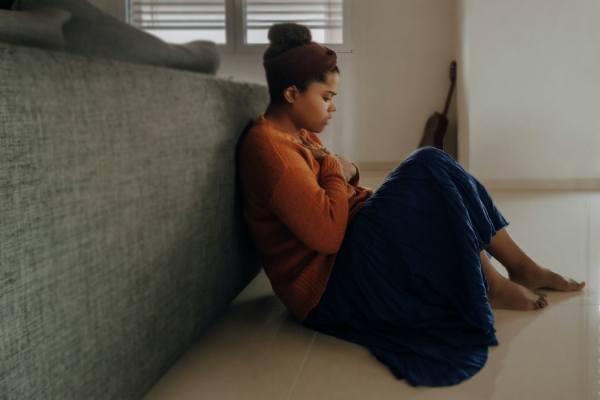Any relationship situation in which one person abuses power over another, frequently disguising their unhealthy behaviors as acts of love, is referred to as a trauma bond. This type of toxic bond is more common than you might realize, and while the abuse involved might vary depending on the relationship, it can manifest itself in many different ways.
To help you recognize the signs, and for tips on steering clear of trauma bonds in future
Trauma Bonding
When abusive relationships spiral into a pattern of abuse, trauma bonding takes place. This typically entails abusive behavior, followed by loving deeds and repeated cycles of kindness and affection. Not everyone who experiences abuse forms a trauma bond, though it can develop after weeks, months, or even years.
Due to the fact that abuse always occurs in the context of love and intimacy, it can be extremely difficult to understand how you’re feeling and you may even come to feel sympathy for the abuser. What the heck, yes? And it doesn’t just happen in domestic abuse, it can also happen in:
- Child abuse
- Incest situations
- Elder abuse
- Exploitative employment
- Kidnapping or hostage situations
- Human trafficking
- High control religious environments
There are multiple factors that increase a person’s risk of trauma bonding. A person’s likelihood of getting stuck in an abusive relationship is increased by low socioeconomic status, mental health problems, and a lack of support. The risk can be decreased by having a stable job, a secure place to live, access to mental health care, and supportive friends and family.
Signs Of Trauma Bonding
Cycle Of Abuse
When a relationship is entirely negative, it can be simpler to recognize it and make the decision to end it. However, abusers are not always cruel to their victims; they can also try to save their relationship by saying sorry, promising to behave differently, acting as though they are in love, and taking other measures.
To be clear, there is never a justification for abuse, but people get stuck in this cycle of tension>abuse>reconciliation>calm because they believe this time the calm will last. There are five main types of abuse that might be present:
- Emotional abuse
- Physical abuse
- Verbal abuse
- Sexual abuse
- Psychological abuse
It may be simpler to spot some of them than others. When these behaviors begin to be repeated in a pattern, it becomes a cycle of abuse.
Power Imbalance
When the abuser has power over the victim, the victim may be reluctant to leave an abusive situation. The ability to make money can be i.e. the victim is unemployed and the abuser has a job and pays rent — or emotional power, where the victim’s emotional defenses have been broken down and they feel defined by the relationship with their abuser.

Not Being Able To Leave
Because they believe they cannot function outside of the relationship, people who have left an abuser sometimes return because of the power disparity. Because trauma bonds are so strong, breaking them may require outside assistance. This usually entails therapy, but it may also involve friends or family holding the person responsible and encouraging them as they attempt to sever the attachment.
Making Excuses For The Behaviour
The victim may attempt to minimize the severity of the abuse or place the blame on themselves in an effort to justify it. Justifications for abusive behavior include saying things like “it’s not that bad, they didn’t hit me very hard” or “I made them jealous, so I deserved it.”
This can also happen because of gaslighting. The abuser claims that the victim was deserving of it, that the abuse never occurred, or that it wasn’t really that bad. The victim eventually begins to doubt reality and begins to believe the lies they were told, repeating them to both themselves and other people.
Keeping The Abuse A Secret
Why would the abuse victim attempt to conceal it? They might be rationalizing the behavior and hoping that others won’t understand why it’s not a big deal; worried about the repercussions of it going public; ashamed of being mistreated; or all of the above.
Not to mention, trauma bonds can result in strong emotional attachments, which means the victim may feel what they mistake for love for their abuser and want to defend them. Celeste’s relationship is a good example to use if you’ve watched Big Little Lies.
Wanting To “Please” The Abuser
A victim of abuse might think that appeasing the abuser will prevent things from getting worse or may genuinely want to do so because “they do things for me” (like provide for me financially). Hormones also can play a role — the intense love shown during the cycle of abuse causes the release of dopamine, which serves a “reward” for the abuse.
It’s comparable to how individuals develop an addiction to any other high-dopamine activity, such as sex or gambling. Most addicts are aware of the negative effects of their addiction, but they still rely on dopamine to experience the pleasure that has come to be connected with their behavior.
Distancing From People Trying To Help
The goal of abusers is to keep their victims away from their network of support. It’s possible for an abuser to establish themselves as the only reliable person in their victim’s life by saying things like, “You know your mother doesn’t want you to be happy,” or “I don’t want you to see that friend anymore.”” The likelihood that the victim will be reminded that the abuse they are experiencing is unacceptable decreases with the number of people present.
Fixating On “The Good Days”
We’ve talked about the cycle of abuse and how it can cause victims to feel love for their abuser. You don’t need to adore everything about your partner to be in a happy relationship.
But concentrating on shared interests while maintaining separate interests is one thing; ignoring domestic abuse or other forms of abuse while focusing only on the good days is quite another. Abuse that is physical or emotionally abusive cannot be compensated for with kindness or affection. No matter what trauma bonding would have you believe, this is true.
Hoping To Change Them
“Our relationship would be ideal if they would just stop their abusive behavior.” The victim may believe that change is possible because there are happy moments in the relationship that make her feel loved. But those happy times are just attempts to persuade the victim to stay, not indications that the abuser is capable of changing.
Wanting Love Despite The Abuse
People who are abused frequently have low self-esteem and long for love, even if that love perpetuates the cycle of abuse. Due to their low self-esteem, victims of abuse may feel that their abuser is the only person who will ever love them, so they may decide to accept it.
Conclusions
You might have gone through trauma bonding if you have ever been in any kind of abusive situation. Nobody should feel guilty or ashamed about this. There is support available for you. It’s a normal reaction to trauma.
















